第136章 CHAPTER IV(2)
"No piteous, unconscious moaning sound--which so wastes our strength that, even if we have sworn to be firm, a rush of unconquerable tears sweeps away the oath--preceded her waking. No space of deaf apathy followed. The first words spoken were not those of one becoming estranged from this world, and already permitted to stray at times into realms foreign to the living."She went on with her work steadily. But it was dreary to write without any one to listen to the progress of her tale,--to find fault or to sympathise,--while pacing the length of the parlour in the evenings, as in the days that were no more. Three sisters had done this,--then two, the other sister dropping off from the walk,--and now one was left desolate, to listen for echoing steps that never came,--and to hear the wind sobbing at the windows, with an almost articulate sound.
But she wrote on, struggling against her own feelings of illness;"continually recurring feelings of slight cold; slight soreness in the throat and chest, of which, do what I will," she writes, "I cannot get rid."In August there arose a new cause for anxiety, happily but temporary.
"Aug. 23rd, 1849.
"Papa has not been well at all lately. He has had another attack of bronchitis. I felt very uneasy about him for some days--more wretched indeed than I care to tell you. After what has happened, one trembles at any appearance of sickness; and when anything ails Papa, I feel too keenly that he is the LAST--the only near and dear relative I have in the world. Yesterday and to-day he has seemed much better, for which I am truly thankful. . . .
"From what you say of Mr. ----, I think I should like him very much. ---- wants shaking to be put out about his appearance. What does it matter whether her husband dines in a dress-coat, or a market-coat, provided there be worth, and honesty, and a clean shirt underneath?""Sept. 10th, 1849.
"My piece of work is at last finished, and despatched to its destination. You must now tell me when there is a chance of your being able to come here. I fear it will now be difficult to arrange, as it is so near the marriage-day. Note well, it would spoil all my pleasure, if you put yourself or any one else to inconvenience to come to Haworth. But when it is CONVENIENT, Ishall be truly glad to see you. . . . Papa, I am thankful to say, is better, though not strong. He is often troubled with a sensation of nausea. My cold is very much less troublesome, I am sometimes quite free from it. A few days since, I had a severe bilious attack, the consequence of sitting too closely to my writing; but it is gone now. It is the first from which I have suffered since my return from the sea-side. I had them every month before.""Sept. 13th, 1849.
"If duty and the well-being of others require that you should stay at home, I cannot permit myself to complain, still, I am very, VERY sorry that circumstances will not permit us to meet just now. I would without hesitation come to ----, if Papa were stronger; but uncertain as are both his health and spirits, Icould not possibly prevail on myself to leave him now. Let us hope that when we do see each other our meeting will be all the more pleasurable for being delayed. Dear E----, you certain]y have a heavy burden laid on your shoulders, but such burdens, if well borne, benefit the character; only we must take the GREATEST, CLOSEST, MOST WATCHFUL care not to grow proud of our strength, in case we should be enabled to bear up under the trial. That pride, indeed, would be sign of radical weakness. The strength, if strength we have, is certainly never in our own selves; it is given us."To W. S. WILLIAMS, ESQ.
"Sept. 21st, 1849.
"My dear Sir,--I am obliged to you for preserving my secret, being at least as anxious as ever (MORE anxious I cannot well be)to keep quiet. You asked me in one of your letters lately, whether I thought I should escape identification in Yorkshire. Iam so little known, that I think I shall. Besides, the book is far less founded on the Real, than perhaps appears. It would be difficult to explain to you how little actual experience I have had of life, how few persons I have known, and how very few have known me.
"As an instance how the characters have been managed, take that of Mr. Helstone. If this character had an original, it was in the person of a clergyman who died some years since at the advanced age of eighty. I never saw him except once--at the consecration of a church--when I was a child of ten years old. I was then struck with his appearance, and stern, martial air. At a subsequent period, I heard him talked about in the neighbourhood where he had resided: some mention him with enthusiasm--others with detestation. I listened to various anecdotes, balanced evidence against evidence, and drew an inference. The original of Mr. Hall I have seen; he knows me slightly; but he would as soon think I had closely observed him or taken him for a character--he would as soon, indeed, suspect me of writing a hook--a novel--as he would his dog, Prince. Margaret Hall called "Jane Eyre" a 'wicked book,' on the authority of the Quarterly; an expression which, coming from her, I will here confess, struck somewhat deep. It opened my eyes to the harm the Quarterly had done.
Margaret would not have called it 'wicked,' if she had not been told so.